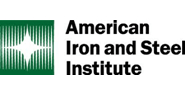Government/Policy

June 17, 2021
Lifting of Section 232 from EU Unlikely in '21: AISI CEO
Written by Michael Cowden
The U.S. and the EU have agreed to “resolve tensions” stemming from Section 232 by year end–but that doesn’t mean the national security tariffs will be lifted anytime soon, the head of the American Iron and Steel Institute (AISI) said.
“I don’t see anything happening before the end of this year. This is a complicated area, and they are going to engage in discussions. … That’s far from a hard and fast deadline,” AISI President and CEO Kevin Dempsey said in an interview with Steel Market Update.
![]() A draft communiqué obtained by mainstream media outlets said the U.S. and EU aimed to lift the tariffs by December 1. But those initial reports were not correct, Dempsey said.
A draft communiqué obtained by mainstream media outlets said the U.S. and EU aimed to lift the tariffs by December 1. But those initial reports were not correct, Dempsey said.
“All these predictions from last week were largely I think based on negotiating positions from the EU, which were designed to try to box and pressure the Biden administration. The Biden administration did not give into that,” he said. “There was no announcement of a lifting of the tariffs.”
And it’s far too early to say whether a general agreement with the EU about easing trade tensions in general is a sign that the broader Section 232 program is in jeopardy. “It’s important to establish up front that this is not simply exempting people from the 232,” Dempsey said.
Case in point: South Korea had talks with the U.S. several years ago that resulted in the country receiving a quota rather than the 25% tariffs imposed on imports from other nations. If the U.S. were to revisit its agreement with South Korea, it could result in a lower quota rather than an easing of trade restrictions. “It’s not necessarily going to be a one-way discussion,” he said.
Indeed, the AISI has been pleased to date with the “strong support” the Biden administration has offered the domestic steel industry. And the lobbying group continues to look forward to working with the Biden team to make sure that policies are in place to address the issue of global excess steelmaking capacity–which Dempsey said remains an existential threat to U.S. producers.
And other trade measures could be enacted even if Section 232 is ultimately lifted from the EU to prevent a potential surge in imports. “We’re not just willy-nilly lifting tariffs on the EU,” Dempsey said.
Whatever happens with Section 232, the U.S. needs to address the longer-term issue of subsidies, including those available to European steelmakers. And finding a meaningful replacement for Section 232 on the EU could take “quite a long time,” he said, pointing to a trade dispute between Chicago-based aircraft maker Boeing and Airbus, its European rival, that dates to the early 2000s.
“We’ve barely just begun a discussion with the EU. What this means long term is far from certain,” he said.
By Michael Cowden, Michael@SteelMarketUpdate.com







